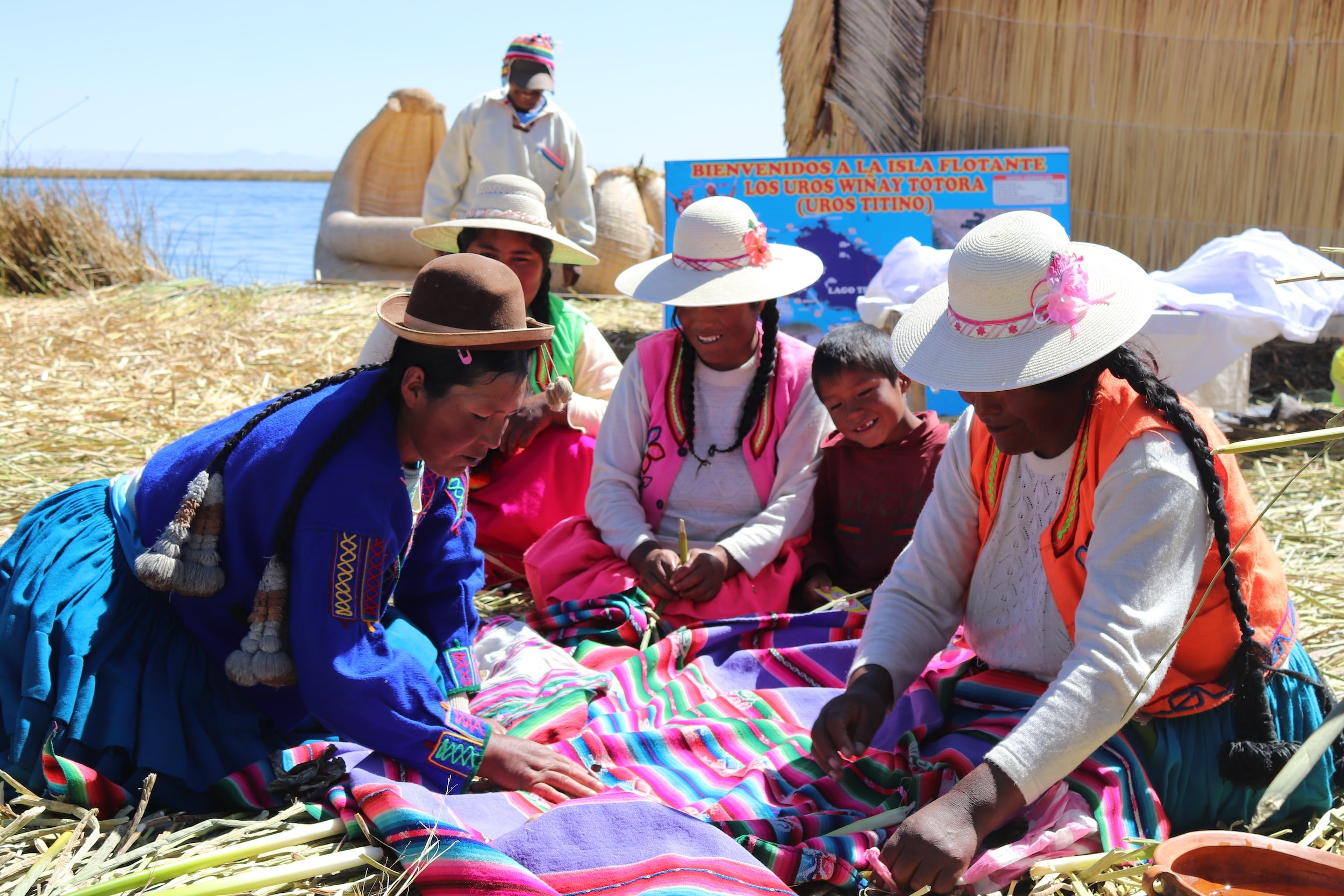How do researchers foster trust?
"Trust may be the researcher’s most precious commodity" (Austin, 2018). This comment in a Journal of Music Teacher Education editorial establishes an important premise. If, in this alternative facts era, researchers lose public trust, will potential participants consent to be a part of empirical studies? How will we find participants willing to share their experiences and insights? How can we create substantive impact, if research findings are regarded no differently than a social media post?
To succeed, we need to be sure we are presenting ourselves and our work as trustworthy. These open-access articles describe issues and challenges related to credibility for researchers and the research. Of course a first step is to be trustworthy, with attention to research integrity, and honesty on our Curriculum Vitae. Sometimes the language we use, or our attitudes towards cultural identities, either build or detract from our credibility.
Read this multidisciplinary collection of open access articles to learn about ways researchers can develop and build trust with participants, community fieldwork sites, and the public. You'll see that these writers point to reflexivity, cultural competence, and the role of institutional affiliations. Share them with your research colleagues and students-- and have a conversation about your own commitment to being a trustworthy researcher.
Armstrong, A., Flynn, E., Salt, K., Briggs, J., Clarke, R., Vines, J., & MacDonald, A. (2022). Trust and temporality in participatory research. Qualitative Research. https://doi.org/10.1177/14687941211065163
Abstract. This paper argues that trust cannot be taken for granted in long-term participatory research and promotes greater consideration to conceptualizing the trusting process as fluid and fragile. This awareness by researchers can reveal to them how the passing of time shapes and reshapes the nature of trusting relationships and their constant negotiation and re-negotiation. The paper draws together literature from different disciplines on the themes of trust, temporality and participatory research and outcomes from interviews and workshops undertaken for The Trust Map project to focus on two key moments that reveal the fragility of trust. These are the subtlety of disruption and trust on trial and trust at a distance. We discuss how trust was built over time through processes of interaction that were continually tested, incremental and participatory.
Braun, R., Ravn, T., & Frankus, E. (2020). What constitutes expertise in research ethics and integrity? Research Ethics, 16(1–2), 1–16. https://doi.org/10.1177/1747016119898402
Abstract. In this paper we reflect on the looming question of what constitutes expertise in ethics. Based on an empirical program that involved qualitative and quantitative as well as participatory research elements we show that expertise in research ethics and integrity is based on experience in the assessment processes. We then connect traditional concepts of expertise as “improved performance” with deliberate practice activities and, based on our research findings, show that ethical assessment experience is a form of deliberate practice. This in our view has further ramifications in the design and recruitment processes of ethical assessment units performing research ethics and integrity assessment.
de Koning, M., Meyer, B., Moors, A., & Pels, P. (2019). Guidelines for anthropological research: Data management, ethics, and integrity. Ethnography, 20(2), 170–174. https://doi.org/10.1177/1466138119843312
Abstract. As anthropologists we are increasingly confronted with attempts – be it by employers, the media, or policy makers – to regulate our work in ways that are both epistemologically and ethically counterproductive and threaten our scientific integrity. This document is written out of concern about the problems that occur when protocols for data management, integrity, and ethics, developed for sciences that employ a positivistic, hypothesis-testing and replicable style of research, are applied to different scientific practices, such as social and cultural anthropology, that are more explorative, intersubjective and interpretative. In social and cultural anthropology, issues of scientific governance and its ethics are strongly case-specific. Still, concerns about the imposition of scientific protocols from other disciplines require anthropologists to develop some general guidelines for data management, integrity and ethics of anthropological research. Rather than fixed rules, these are broad principles to guide work and adapt it to specific cases.
Denner, J., Bean, S., Campe, S., Martinez, J., & Torres, D. (2019). Negotiating Trust, Power, and Culture in a Research–Practice Partnership. AERA Open. https://doi.org/10.1177/2332858419858635
Abstract. This article describes the role of culture and power in building a research–practice partnership (RPP). The original aims that drove the building of the RPP were to generate and use research to inform the programs and services provided by the youth-serving organization to Latinx youth and to use the findings to inform research on how to broaden participation in computing. In this article, we describe how the RPP evolved. Data include documentation from meeting notes, e-mails, and observations as well as interviews with practitioners. The results suggest that the research goals and process changed when the partners began to critically analyze and discuss the role of power and culture, and adjustments to the methods and theoretical grounding of the research were made as a result. The lessons learned are summarized in terms of their implications for generating research that has both theoretical and social justice implications.
Edwards, K., Lund, C., Mitchell, S., & Andersson, N. (2008). Trust the Process: Community-based Researcher Partnerships. Pimatisiwin, 6(2), 186–199.
Abstract. In recent years, Aboriginal communities across Canada have begun to seek ways to increase their participation and control of research that affects them. Similarly, academics are seeking new methods to include parallel and complementary knowledge in their research, including traditional knowledge and community experience and expertise. New approaches, theories, and methods related to, or derived from, Indigenous ways of knowing are appearing. Among the approaches that have emerged are community-based participatory research (CBPR), and, closely related, the role of the community-based researcher (CBR). This paper reviews some of the literature that traces the emergence of the role of CBRs as a strategy for community engagement in research. We discuss ethical issues that CBRs encounter in their practice, and some of the lessons we have learned together as a CBPR team.
Gierth, L., & Bromme, R. (2020). Attacking science on social media: How user comments affect perceived trustworthiness and credibility. Public Understanding of Science, 29(2), 230–247. https://doi.org/10.1177/0963662519889275
Abstract. The science on controversial topics is often heatedly discussed on social media, a potential problem for social-media-based science communicators. Therefore, two exploratory studies were performed to investigate the effects of science-critical user comments attacking Facebook posts containing scientific claims. The claims were about one of four controversial topics (homeopathy, genetically modified organisms, refugee crime, and childhood vaccinations). The user comments attacked the claims based on the thematic complexity, the employed research methods, the expertise, or the motivations of the researchers. The results reveal that prior attitudes determine judgments about the user comments, the attacked claims, and the source of the claim. After controlling for attitude, people agree most with thematic complexity comments, but the comments differ in their effect on perceived claim credibility only when the comments are made by experts. In addition, comments attacking researchers’ motivations were more effective in lowering perceived integrity while scientists’ perceived expertise remained unaffected.
Gray, B., Hilder, J., Macdonald, L., Tester, R., Dowell, A., & Stubbe, M. (2016). Are research ethics guidelines culturally competent? Research Ethics, 13(1), 23-41. doi:10.1177/1747016116650235
Abstract. Research ethics guidelines grew out of several infamous episodes where research subjects were exploited. There is significant international synchronization of guidelines. However, indigenous groups in New Zealand, Canada and Australia have criticized these guidelines as being inadequate for research involving indigenous people and have developed guidelines from their own cultural perspectives. Whilst traditional research ethics guidelines place a lot of emphasis on informed consent, these indigenous guidelines put much greater emphasis on interdependence and trust. This article argues that traditional guidelines are premised on relationships of equal power, and that often the researcher has more power that is not fully equalized by providing information. Where there is a relationship of unequal power, then focusing on interdependence and trust is more likely to achieve ethical safety. We illustrate this thesis by describing the detail of a research project looking at the use of interpreters, where we video-recorded live consultations and then interviewed the patient, interpreter and doctor. We conclude by suggesting that mainstream research ethics guidelines should pay more attention to the development of a trustworthy relationship between subject and researcher, and that, following the lead from clinical medicine, we should develop a culturally competent ethical framework for research on human subjects.
Guillemin, M., Barnard, E., Allen, A., Stewart, P., Walker, H., Rosenthal, D., & Gillam, L. (2018). Do Research Participants Trust Researchers or Their Institution? Journal of Empirical Research on Human Research Ethics, 13(3), 285–294. https://doi.org/10.1177/1556264618763253
Abstract. Relationships of trust between research participants and researchers are often considered paramount to successful research; however, we know little about participants’ perspectives. We examined whom research participants trusted when taking part in research. Using a qualitative approach, we interviewed 36 research participants, including eight Indigenous participants. Thematic analysis was used to analyze the data. This article focuses on findings related to non-Indigenous participants. In contrast to Indigenous participants, non-Indigenous participants placed their trust in research institutions because of their systems of research ethics, their reputation and prestige. Researchers working in non-Indigenous contexts need to be cognizant that the trust that participants place in them is closely connected with the trust that participants have in the institution.
Hofmann, B., & Holm, S. (2019). Research integrity: environment, experience, or ethos? Research Ethics, 15(3–4), 1–13. https://doi.org/10.1177/1747016119880844
Abstract. Research integrity has gained attention in the general public as well as in the research community. We wanted to investigate knowledge, attitudes, and practices amongst researchers that have recently finished their PhD and compare this to their responses during their PhD fellowship. In particular, we wanted to investigate whether their attitudes are related to their experiences of their immediate research environment.
König, L., & Jucks, R. (2019). Hot topics in science communication: Aggressive language decreases trustworthiness and credibility in scientific debates. Public Understanding of Science, 28(4), 401–416. https://doi.org/10.1177/0963662519833903
Abstract. Current scientific debates, such as on climate change, often involve emotional, hostile, and aggressive rhetorical styles. Those who read or listen to these kinds of scientific arguments have to decide whom they can trust and which information is credible. This study investigates how the language style (neutral vs aggressive) and the professional affiliation (scientist vs lobbyist) of a person arguing in a scientific debate influence his trustworthiness and the credibility of his information. In a 2 X 2 between-subject online experiment, participants watched a scientific debate. The results show that if the person was introduced as a lobbyist, he was perceived as less trustworthy. However, the person’s professional affiliation did not affect the credibility of his information. If the person used an aggressive language style, he was perceived as less trustworthy. Furthermore, his information was perceived as less credible, and participants had the impression that they learned less from the scientific debate.
Pitard, J. (2017). A journey to the centre of self: Positioning the researcher in autoethnography. Paper presented at the Forum Qualitative Sozialforschung/Forum: Qualitative Social Research.
Abstract. For a reader to trust the perspective of a researcher as presented in qualitative inquiry, the disclosure of the researcher's position in relation to the data is vital. Who am I in relation to the research? becomes the central tenet in disclosing the positioning of the researcher. I contend that what we know (ontology), and how we know it (epistemology), are a result of our philosophical beliefs developed through our lifelong learning and not a precursor to them. In seeking to understand my philosophical positioning when researching my teaching a group of professionals from Timor Leste, I have found it helpful to answer four questions. What do I believe underpins my knowledge of life? Where did I gain this belief? How does this belief influence the way I react to situations and people? How do the assumptions, which I have accumulated from my life experiences, affect my reflexivity in my research? This article describes the process that I have used to reveal my position in relation to the data using examples from my autoethnography.
Pelzang, R., & Hutchinson, A. M. (2018). Establishing Cultural Integrity in Qualitative Research: Reflections From a Cross-Cultural Study. International Journal of Qualitative Methods. https://doi.org/10.1177/1609406917749702
Abstract. This article contributes to the growing body of literature on the methods and techniques that might be used to help ensure the cultural integrity and rigor of research that has a cross-cultural dimension. Drawing upon our experiences while conducting a study investigating patient safety concerns in Bhutan, we will reflect on how the study was conceptualized and framed around the elements of the Bhutanese traditional cultural values; how the researchers were positioned; and how the intercultural perceptions, representations, languages, and attitudes influenced the fieldwork processes. It is anticipated that the approach described in this article will help qualitative researchers to understand how important it is to recognize and be responsive to the cultural and linguistic nuances of given research settings to achieve cultural integrity.
Phillips, T., Saunders, R. K., Cossman, J., & Heitman, E. (2019). Assessing Trustworthiness in Research: A Pilot Study on CV Verification. Journal of Empirical Research on Human Research Ethics, 14(4), 353–364. https://doi.org/10.1177/1556264619857843
Abstract. When scholars express concern about trust in science, they often focus on whether the public trusts research findings. This study explores a different dimension of trust and examines whether and how frequently researchers misrepresent their research accomplishments when applying for a faculty position. We collected all of the vitae submitted for faculty positions at a large research university for 1 year and reviewed a 10% sample for accuracy. Of the 180 applicants whose vitae we analyzed, 141 (78%) claimed to have at least one publication, and 79 of these 141 (56%) listed at least one publication that was unverifiable or inaccurate in a self-promoting way. We discuss the nature and implications of our findings, and suggest best practices for both applicants and search committees in presenting and reviewing vitae.
Scheitle, C. P. (2019). Does the public’s confidence in the scientific community affect its willingness to participate in social science research? A test examining the demeanor of survey respondents. Methodological Innovations. https://doi.org/10.1177/2059799119884280
Abstract. Research examining the consequences of the public’s confidence in the scientific community has primarily focused on the natural or medical sciences. It is not clear whether the public’s confidence in the scientific community has implications for research and practice in the social sciences. To begin examining this question, this study assesses whether survey respondents’ confidence in the scientific community is associated with their demeanor during the survey interview. This is consequential because respondent demeanor itself has been associated with survey refusal and nonresponse to items within surveys. Analysis of the 2004–2016 General Social Survey finds that individuals expressing more confidence in the scientific community are rated as having more positive demeanors by interviewers. Respondents’ confidence in other types of institutions does not show the same association, suggesting that confidence in the scientific community is uniquely associated with respondents’ demeanor during the interview. These findings suggest that the public’s confidence in science could have implications for at least survey-based social science research.
Talleh Nkobou, A. (2020). The trepidations of a PhD researcher–Who are you and why are you here? Area.
Abstract. Researchers are not a homogenous group and the world of the researcher is a non‐static social construction ridden with power struggles. A non‐native researcher may fail in their attempt to world‐travel if they are not open to self‐construction.
This paper contributes to research that has a predominant focus on Western researchers in the global South. First, the paper examines how my African identity fits into a Western discourse of being a researcher and their intersections with my other personalities as I world‐travel. “World‐travelling” is about the plurality of selves and an opening for self‐construction. Second, the paper elaborates on violence and intimidation in the field and how researchers may succeed or fail in negotiating such risks. As a non‐native researcher in a UK‐based University, I acknowledge my plurality of selves and the skills needed to navigate these social worlds.
Tubig, P., & McCusker, D. (2020). Fostering the trustworthiness of researchers: SPECS and the role of ethical reflexivity in novel neurotechnology research.Research Ethics. https://doi.org/10.1177/1747016120952500
Abstract. The development of novel neurotechnologies, such as brain-computer interface (BCI) and deep-brain stimulation (DBS), are very promising in improving the welfare and life prospects many people. These include life-changing therapies for medical conditions and enhancements of cognitive, emotional, and moral capacities. Yet there are also numerous moral risks and uncertainties involved in developing novel neurotechnologies. For this reason, the progress of novel neurotechnology research requires that diverse publics place trust in researchers to develop neural interfaces in ways that are overall beneficial to society and responsive to ethical values and concerns. In this article, we argue that researchers and research institutions have a moral responsibility to foster and demonstrate trustworthiness with respect to broader publics whose lives will be affected by their research. Using Annette Baier’s conceptual analysis of trust, which takes competence and good will to be its central components, we propose that practices of ethical reflexivity could play a valuable role in fostering the trustworthiness of individual researchers and research institutions through building and exhibiting their moral competence and good will. By ethical reflexivity, we mean the reflective and discursive activity of articulating, analyzing, and assessing the assumptions and values that might be underlying their ethical actions and projects. Here, we share an ethics dialog tool—called the Scientific Perspectives and Ethics Commitments Survey (or SPECS)—developed by the University of Washington’s Center of Neurotechnology (CNT) Neuroethics Thrust. Ultimately, the aim is to show the promise of ethical reflexivity practices, like SPECS, as a method of enhancing trustworthiness in researchers and their institutions that seek to develop novel neurotechnologies for the overall benefit of society.
Reference
Austin, J. (2018). The Inherent Trust in Researchers. Journal of Music Teacher Education, 27(3), 7–9. https://doi.org/10.1177/1057083718777089























Informed consent is the term given to the agreement between researcher and participant. In this post Janet Salmons offers suggestions about the intersections of the Internet communications, ethics and participants.